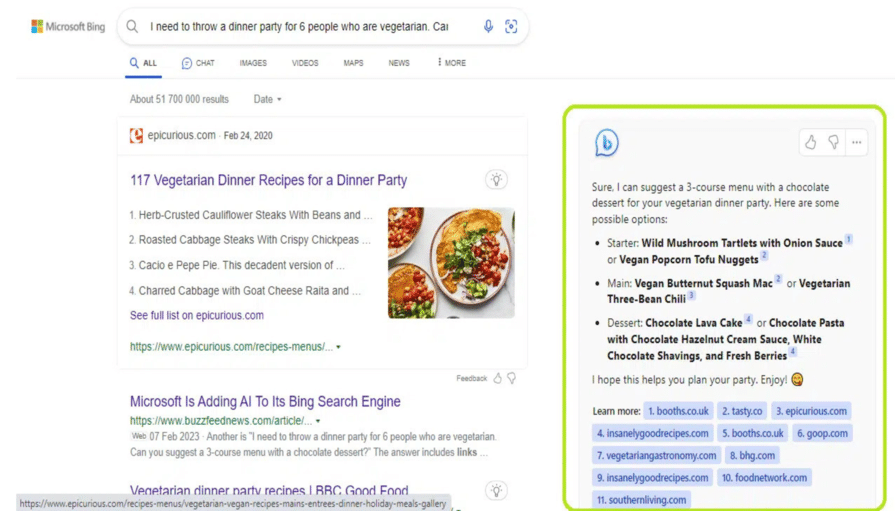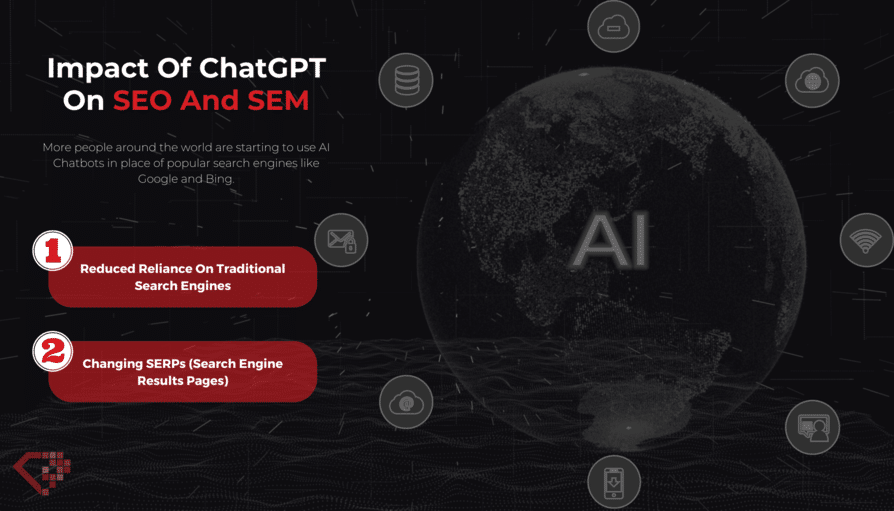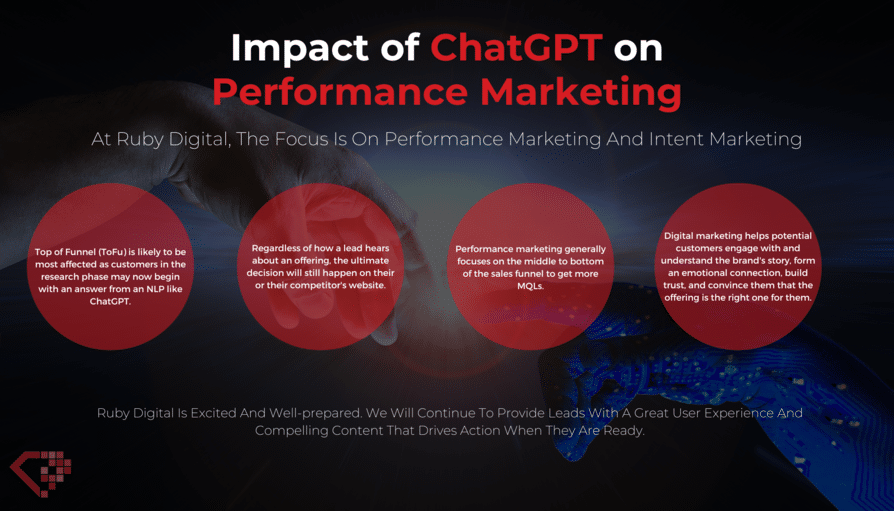ChatGPT is an AI tool that has revolutionized the world since its launch in November 2022. Within just two months, it skyrocketed to unprecedented popularity, boasting 100 million monthly active users and securing its position as the most sought-after consumer app in history. Its widespread availability marks a significant milestone as the first AI tool accessible to the public at such a scale.
This remarkable success has not only captured the public’s imagination but also ignited a surge of innovation and investor interest in AI technology. However, amidst the excitement, questions abound regarding the capabilities and limitations of ChatGPT.
So, what exactly can ChatGPT do, and where are its boundaries? Furthermore, how does its emergence impact SEO and the broader landscape of performance marketing?
To uncover the answers to these pressing questions, delve into the following discussion.
What is ChatGPT?
ChatGPT is an advanced artificial intelligence (AI) tool developed by OpenAI, a prominent AI research and deployment company founded in 2015. It is built upon the foundation of OpenAI’s GPT-3 family of large language models. The primary function of ChatGPT is to engage in conversational interactions with users.
Overview of ChatGPT:
- ChatGPT is designed to engage users in natural language conversations. It can answer questions, generate stories, write code, and perform various other tasks based on the input it receives.
- It leverages OpenAI’s GPT-3 (Generative Pre-trained Transformer 3) model, which is known for its advanced natural language processing capabilities.
- ChatGPT has been pre-trained on a vast amount of data sourced from the internet up until 2021. This means it may not always provide the most up-to-date information.
- It considers previous messages in a conversation to maintain context and deliver more relevant responses, mimicking human interaction to some extent.
- While there are other AI tools available for natural language processing (NLP), ChatGPT stands out as one of the most widely publicized and utilized ones.
For businesses, ChatGPT offers potential benefits such as automating repetitive tasks, providing quick and widely available answers, and enabling the development of innovative tools like customer service bots or automated FAQs using NLP technology. But as we’ll see below, it has its shortcomings too.
Limitations of NLPs like ChatGPT
Limited Access to Current Information
Since ChatGPT was trained on data up until 2021, it lacks access to recent or live information. As a result, it may provide outdated or inaccurate answers when queried about current events or data.
Potential Biases
Despite efforts to mitigate biases during training, ChatGPT may still exhibit biases inherited from its training data. Human trainers, often unknowingly, impart biases into the AI, which can influence the responses it generates. Additionally, the AI may inadvertently amplify or propagate user biases based on their inputs.
Generic Content
While ChatGPT boasts vast knowledge, it may not match the expertise of human specialists in specific fields. In terms of meeting Google’s E-E-A-T (Experience, Expertise, Authority, Trust) ranking factors and providing helpful content, ChatGPT may fall short. It may struggle to accurately assess content quality or provide the depth of information expected from human experts.
Potential for Spam Violations and Penalties
Mass-producing low-quality content using NLPs like ChatGPT can violate Google’s spam policies. While AI-generated content itself is not prohibited, using automation to manipulate search rankings is against the rules. Sudden shifts from high-quality to low-quality content may trigger Google’s spam detection systems, leading to manual penalties and drastic drops in rankings.
For instance, consider a business website that has consistently produced two or three well-crafted, informative, and valuable blog posts over the years. However, if they abruptly shift their strategy and begin flooding their website with numerous generic or unhelpful articles, it could trigger Google’s SpamBrain system. This sudden change in content quality and relevance may lead to a manual penalty from Google, resulting in a significant decline in search rankings. Recovering from such a penalty can be challenging and time-consuming, highlighting the importance of maintaining content quality and relevance to avoid detrimental impacts on SEO performance.
To mitigate these limitations and use NLPs like ChatGPT effectively for SEO, it’s crucial to employ human writers or editors to review and revise the generated content. This hybrid approach ensures that only high-quality and relevant content is published, reducing the risk of penalties and maintaining SEO integrity.
Impact of ChatGPT on SEO and SEM
The emergence of AI chatbots, such as ChatGPT, is reshaping the landscape of online search, leading to reduced reliance on traditional search engines like Google and Bing, especially for queries requiring nuanced or complex answers. This shift is driven by the convenience of receiving human-like explanations directly from chatbots, eliminating the need to sift through search results manually.
This transition is expected to bring about several effects:
- Lower search volumes for long-tail queries
- Potentially inaccurate data
- Impact on top-of-funnel marketing
Changing SERPs (Search Engine Results Pages)
The search engine results page (SERP) is undergoing continuous evolution to deliver users with increasingly relevant and timely information. Recent advancements include features such as position 0, featured snippets, images, videos, and rich media, enhancing the user experience. Depending on the nature of the query, SERPs may also display specialized results like shopping products or reviews, catering to diverse user needs.

Bing has introduced ChatGPT as an integrated feature within its SERPs, enabling users to obtain answers to their queries directly on the search results page without the need to click through any links. This integration streamlines the search process, providing immediate responses to user inquiries and potentially altering user behavior in navigating search results.
Google is gearing up to introduce Bard, its counterpart to ChatGPT, which promises to revolutionize the way users engage with their search engine. Bard will offer direct answers sourced from websites, diverging from the traditional practice of simply displaying links in its SERPs. While this shift holds potential benefits for users by providing immediate answers, it may lead to a decline in clicks on search results. Recent data indicates that 25% of searches already result in zero-click searches, underscoring the evolving landscape of search behavior.
The emergence of NLP technologies like ChatGPT and Bard presents significant opportunities for enhancing user experience. However, their introduction is poised to disrupt existing SEO strategies. Later in this post, we’ll delve into how Ruby Digital is navigating this new challenge with a detailed discussion.

Impact of ChatGPT on Performance Marketing
You might be asking, “How will this impact my digital marketing strategies?” The evolving landscape of SERPs, influenced by the integration of NLP technologies like ChatGPT and Bard, has significant implications for digital marketing strategies. Particularly, the impact varies depending on the stage of the sales funnel that potential customers are in.
At the top of the funnel (ToFu), where customers typically engage with brands for the first time during their research phase, the changing shape of SERPs is likely to have a pronounced effect. Instead of relying solely on traditional search engine results, users may now initiate their journey with answers provided by NLPs like ChatGPT. This shift can potentially disrupt traditional remarketing and lead nurturing strategies, as users may not initially click on ads or links that can be retargeted.
Fortunately, performance marketing strategies often focus on the middle to bottom of the sales funnel to generate marketing-qualified leads (MQLs). At Ruby Digital, we specialize in performance marketing and intent marketing, targeting companies that are committed to growth and engagement beyond the research phase.
Regardless of whether a lead first encounters an offering through traditional SERPs or via a chatbot like ChatGPT, the final decision to make a purchase still typically occurs on the brand’s or competitor’s website. This underscores the importance of what we do at Ruby Digital: helping potential customers engage with and understand the brand’s story, forming an emotional connection that builds trust and ultimately convinces them that the offering is the right fit for their needs. This fundamental aspect of marketing remains unchanged amidst the evolving digital landscape.

In conclusion, the emergence of Natural Language Processing (NLP) technology, exemplified by ChatGPT, is poised to revolutionize how users search for information online. By leveraging AI-driven algorithms, ChatGPT delivers written answers directly in search engine results pages (SERPs), potentially leading to more 0-click searches, where users obtain immediate answers without navigating to a website.
While this shift may simplify the search process for users, it poses challenges for performance marketers reliant on clicks and conversions from organic SERP traffic. At Ruby Digital, we embrace these changes with enthusiasm and readiness. Our commitment remains steadfast: providing leads with exceptional user experiences and valuable content that drives action when they’re primed to take it.
If you’re curious about the intersection of ChatGPT and SEO or seek assistance with content marketing in this evolving landscape of performance marketing, don’t hesitate to reach out. We’re here to help navigate these exciting developments together.




